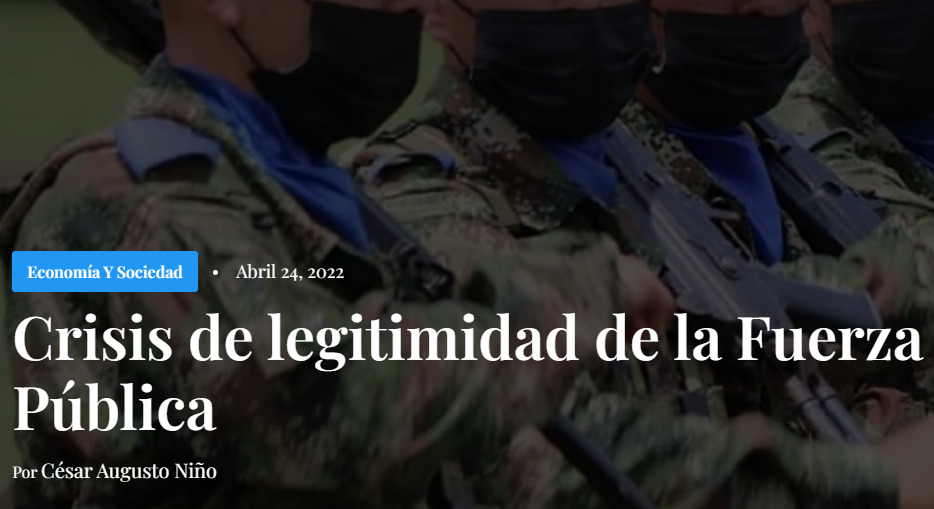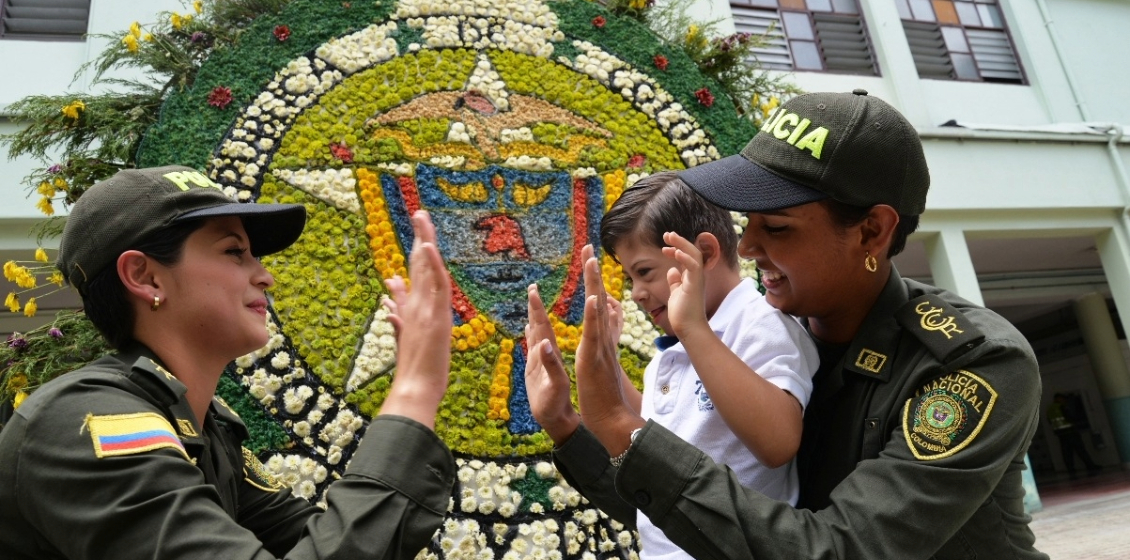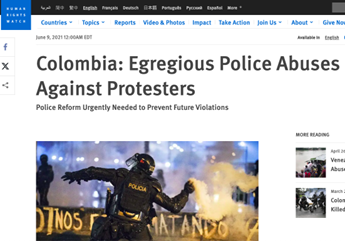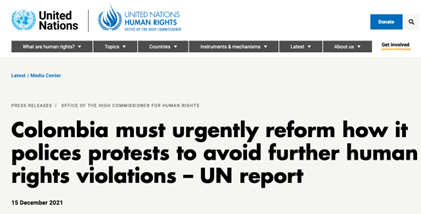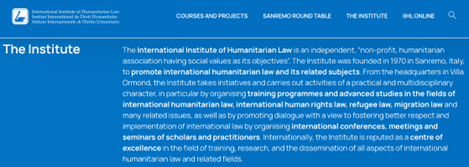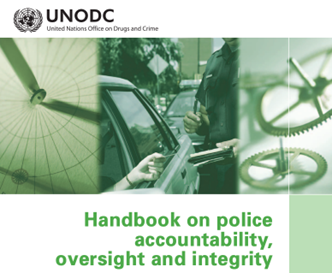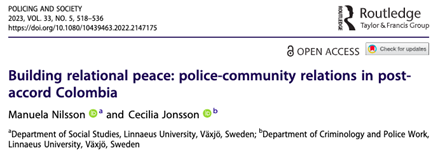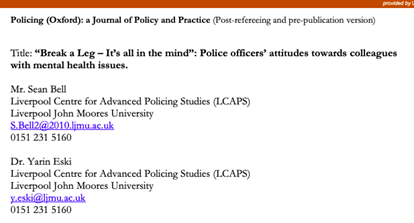In April 2021, widespread protests erupted across Colombia due to dissatisfaction with a tax reform proposal, economic inequality, police violence, and limited public services. The demonstrations continued for weeks, met by the National Police and Mobile Anti-Riot Squad (ESMAD). Razon Publica reported numerous instances of excessive force, attracting attention from the Inter-American Commission on Human Rights by June 2021. International organizations like Amnesty International and Human Rights Watch condemned the police violence; Human Rights Watch reported 68 deaths, and OHCHR documented over 60 allegations of sexual violence by law enforcement.
These events prompted calls for police reform, particularly in oversight and accountability. In response, the National Police introduced reforms to rebuild public trust, creating community policing units and engaging with communities through meetings. Yet, these changes are part of a larger cultural transformation within the National Police, intended to better align training and practices with community needs.
In 2023, during my internship with the Defense Criminal Investigation Unit (UID) in Bogota, Colombia, I observed these reforms firsthand. This internship, part of my Master’s program in International and Security Politics at the Catholic University of Lille in France, focused on creating resources to promote human rights in police training. Through collaboration with the Ministry of Education, international NGOs, security and pedagogy experts, I supported initiatives designed to integrate human rights standards into police operations, emphasizing conflict resolution and peaceful engagement.
The UID advises public institutions on issues related to criminal investigation, human rights, and security. It collaborates with the National Police, National Army, Attorney General’s Office, and educational institutions, providing training in public security, criminology, and judicial investigation. My role involved developing curriculum materials to embed human rights in police education, emphasizing peaceful conflict management aligned with national and international standards.
Key Observations and Discussions on Police Reform and Human Rights Education
Reflecting on my experience, I found police reform most effective when paired with public education initiatives. To transform the relationship between Colombian society and law enforcement, human rights education must reach beyond academia to the general public, reshaping social values and fostering empathy for law enforcement personnel.
Discussions revealed a need to view police duties as enhancing citizens well-being rather than just maintaining order. The National Police can regain public trust through transparent, community-centered policing, but must also tackle deeper cultural dynamics and informal power structures affecting public perceptions.
During my internship, I participated in several events that highlighted the complexities of human rights training for police forces. One focus group gathered experts in international humanitarian law, law enforcement, and public policy to assess whether the theoretical knowledge imparted to police officers was sufficient to ensure compliance in practice. The discussions underscored the unique social context of Colombia and the need to dismantle the false dichotomy between security and human rights, emphasizing the importance of emotional intelligence in police work.
Another notable event was an international seminar titled Security and Democratic Life in Latin America, organized by the International Institute of Humanitarian Law (IIHL) in partnership with Colombian and Italian agencies. This seminar brought together experts from across Latin America to share experiences on police training, offering comparative insights into the interplay between police operations, international humanitarian law, and human rights standards. The seminar reinforced the idea that advancing human rights within police institutions is not solely an institutional responsibility; it requires shifts in social attitudes and community engagement. Recommendations included community policing strategies that promote trust and active citizen participation in shaping law enforcement policies.
A final forum at Bogota’s Police Education headquarters revealed a willingness among some senior police officials to acknowledge gaps in police education, particularly regarding emotional management and ethics. Many officials expressed concerns about the disconnect between theoretical training and Colombia’s social realities, emphasizing the need for new recruits to receive courses on social coexistence and peaceful conflict resolution. A recurring theme was the need to “decontaminate” recruits from prior experiences in violence-prone environments. For many, police work is pursued more for economic and social advancement than for civic duty, necessitating a focus on emotional well-being and moral integrity.
International Perspectives and Conclusions on Policing in Latin America
For genuine reform to take hold, police training must embrace critical thinking about both the explicit curriculum and the “hidden curriculum”—the implicit beliefs and values passed down within the institution. This was a point of contention during a focus group with police officers and human rights experts, where opinions diverged on the need for critical thinking as a core component of training. Some senior officers resisted this approach, fearing it could undermine institutional hierarchy, while others argued that a rigid structure hindered internal communication and blurred the lines between military and community-oriented police roles.
In conclusion, instilling critical thinking and self-reflection within police training is essential for advancing human rights and restoring community trust in law enforcement. The UID’s project, though ambitious, often clashed with entrenched institutional values, including gender stereotypes and a masculinized perception of police work. Addressing these issues at a systemic level involves questioning how internalized values affect police interactions with marginalized groups and whether they perpetuate inequality and a lack of empathy in policing. As emphasized by the UNODC, transparency and openness to scrutiny are foundational to effective and legitimate policing. Only when officers are trained in empathy, emotional resilience, and critical self-assessment can they truly embody a community-oriented ethos that fosters genuine trust and collaboration with Colombian society.
Ultimately, achieving public confidence in law enforcement is a domino effect that begins with providing officers with high-quality, comprehensive education that respects legal standards and human needs. A police force trained with empathy and accountability will foster a community that views law enforcement not as a distant authority but as an integral and supportive part of society.
International agencies have been instrumental in providing financial and technical assistance. For example, the UID project received support from USAID, which provided resources and expertise. However, as noted by Nilsson and Jonsson in their 2022 study, international involvement must align with local realities; police officers in conflict-affected countries often operate under challenging socioeconomic conditions that differ significantly from those faced by international police trainers. This underscores the importance of a combined “top-down and bottom-up” approach that considers both institutional reforms and the lived experiences of police officers.
In summary, integrating human rights principles into police education is crucial for promoting a culture of accountability and community engagement. Sustainable change requires ongoing assessment and enhancement of educational programs, especially for vulnerable and minority groups. Adopting gender-sensitive training, as highlighted by the UNODC, can foster community-oriented policing by ensuring that policies reflect the needs of diverse populations and strengthen public trust. A gender-inclusive approach involves engaging community stakeholders and promoting equal representation within the police force, reinforcing both formal and informal oversight mechanisms.
The National Police’s training programs should emphasize not only human rights and community service but also the internal dynamics within the police. Officers operating in a supportive, rights-respecting environment are more likely to provide compassionate, high-quality service to citizens. As Bell and Eski observe, police officers, like civilians, are entitled to fundamental human rights, and wearing a uniform does not mean they forfeit these rights. Improving officers’ mental well-being benefits both the officers themselves and the communities they serve.
In Colombia, the deep-rooted association of security with force and military efficiency makes it challenging to transition to a community-centered policing model. Although community policing units have been set up nationwide, officers still require further training to strengthen their skills in community engagement. Merely being visible in neighborhoods isn’t enough to build lasting trust; true community policing demands commitment and consistent, meaningful interaction. For many Colombians, the police are still seen as adversarial forces focused on control rather than fostering genuine community bonds, as recent studies suggest. Repairing this relationship is essential to advancing peace in post-conflict Colombia, where trust between police and citizens remains fragile. The recent clashes during protests highlight just how delicate this relationship is—and how easily it can unravel without sustained efforts to nurture trust on both sides.
Daniela Padilla has a M.Sc. International and Securiy Politics, Catholic University of Lille/ESPOL, France, and is a DDRN Intern
